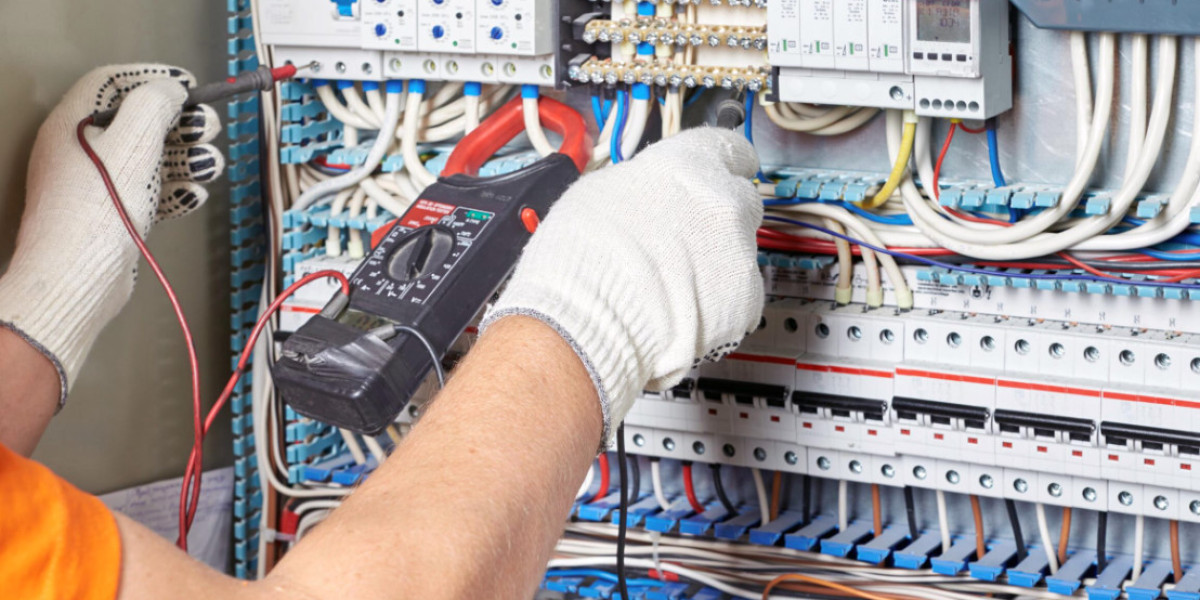A career as an electrical contractor offers a variety of rewards. However, it is important to have the right skills to be successful.
Critical thinking is an essential skill for electrical contractors. It allows them to create plans for wiring new buildings and identify problems with existing electrical systems.
It also helps them to make decisions about which tools to use and how to maintain their equipment. Effective communication skills are necessary to convey information to other employees and clients.
Outdoor Lighting Services
Landscape lighting adds nighttime ambiance to patios, decks, gardens, and pool areas. It also improves safety and security by illuminating pathways, discouraging prowlers, and enhancing property value. The right landscape lights can make a backyard pool the perfect place for moonlight swims, create a welcoming ambiance for a back porch barbecue or garden party, and highlight beautiful architectural features.
Electrical contractors can install exterior lighting safely so that lighting controls are easy to use, wiring is hidden from view, and lighting is properly integrated with your homes electrical system. They can also provide advice on landscaping options that are energy efficient and eco-friendly, making the most of your yards natural beauty while reducing your utility bills.
Well-lit walkways are a deterrent to prowlers, and they help prevent trips and falls, especially for elderly family members and guests. Lighting can also be installed along the perimeter of your home to enhance security and discourage unwanted visitors.
Electric Panel Installation
An electrical contractor uses attention to detail to make sure they complete projects to the clients specifications. This skill helps them notice small problems with power tools and other equipment that might cause harm if left unattended. They also use this skill when planning larger projects, such as wiring a building for commercial use.
The cost of installing a new electrical panel depends on several factors, including the type and amperage of the panel. Most homeowners need a 200-amp service, but older homes may require an upgrade to handle more electricity. An electrician can evaluate your home and recommend the right amperage for your needs.
Once the panel is installed, the electrician can run wires to each circuit. They then label each circuit to identify its function. This makes it easy for the homeowner or a future electrician to shut off the correct circuit. They also remove the old breaker box, which can expose worn parts and outdated wiring that need to be replaced or brought up to code.
Voltage Circuits
Voltage is a force that drives electrons (electric current) through a circuit. It is also known as electrical potential difference or electromotive force (emf). It represents the pressure from an electric source that pushes electrons through a conducting loop, allowing them to do work such as illuminating a lamp.
It is measured in volts, a derived SI unit named after Italian physicist Alessandro Volta (1745-1827), inventor of the voltaic pile, the forerunner of todays household battery. Voltage is a cause of current, but current is the effect.
The flow of electrons through a circuit depends on the resistance of its components, as well as the voltage pushing them. The current that flows continuously is called direct current, or DC, while current that alternates back and forth through a circuit is known as alternating current, or AC.
Maintenance
Electrical contractors offer ongoing maintenance services to help keep existing infrastructure functioning safely and efficiently. This involves inspecting equipment and repairing or replacing aging parts. In some cases, this work requires the use of power tools and heavy equipment.
It also requires excellent verbal and written communication skills, including consulting with clients to understand their electrical needs. In addition, they must be fully knowledgeable of all construction safety requirements and technological updates. This includes the ability to distinguish different wires, which are often color coded.
Electricians CA can either be independent contractors or employees of companies that specialize in electrical work. The latter is typically called line contractors or those who work outside, whereas inside contractors are those that work within the premises of a client. Line contractors see to it that electricity generated from a power plant is carefully carried through high-voltage lines and substations before it is distributed to homes and buildings. Inside, electrical contractors manage all wiring and electricity systems that are used within a building.








